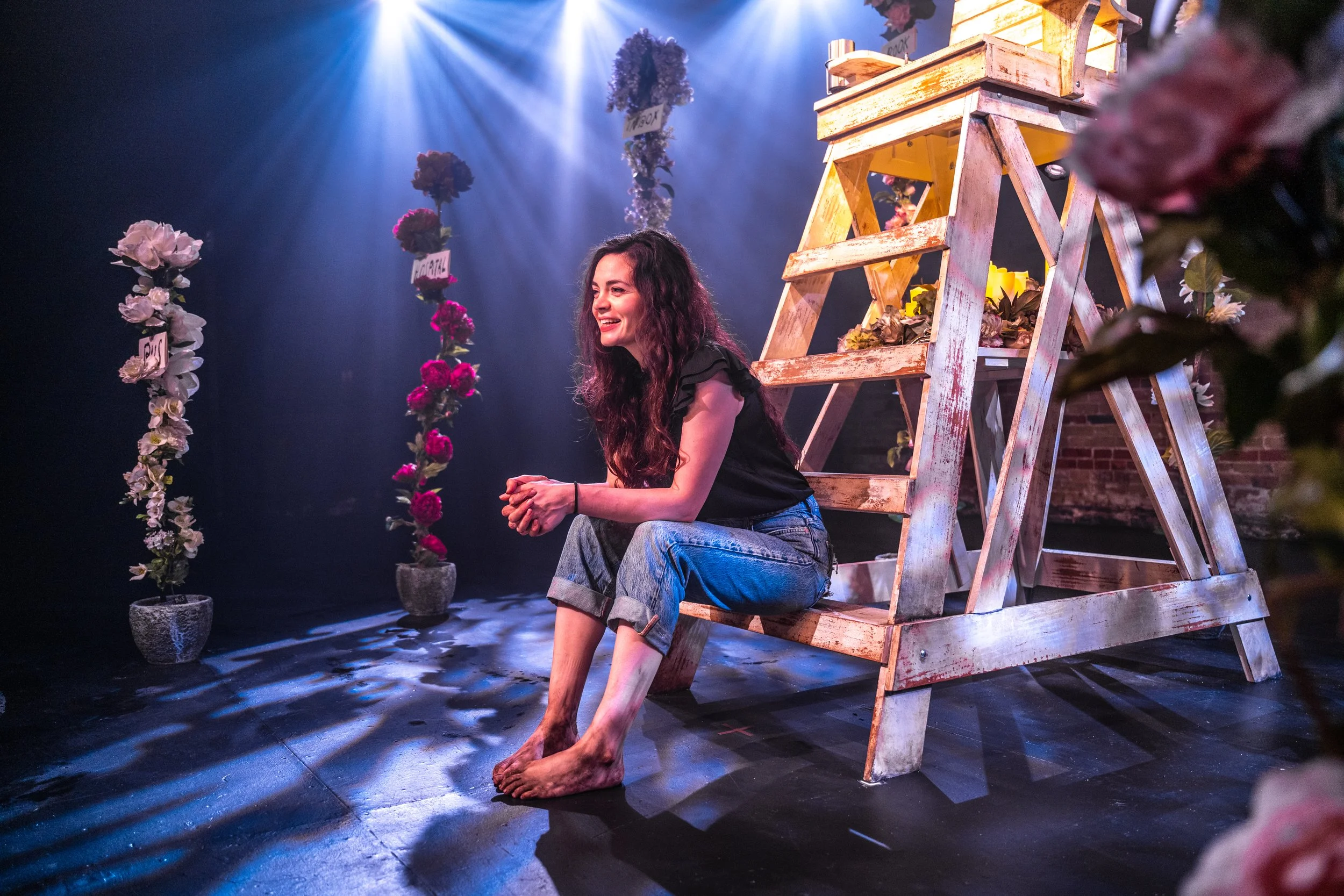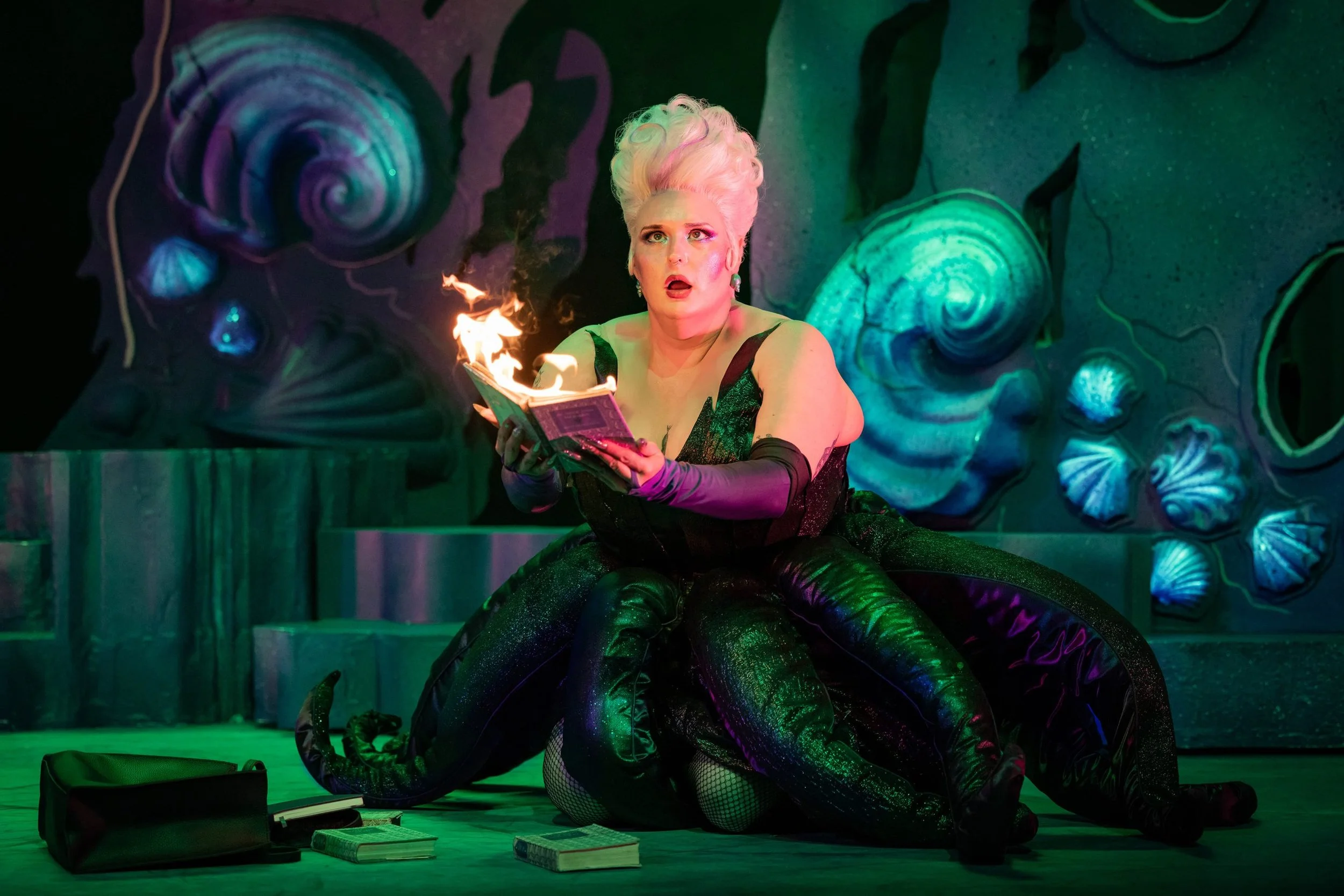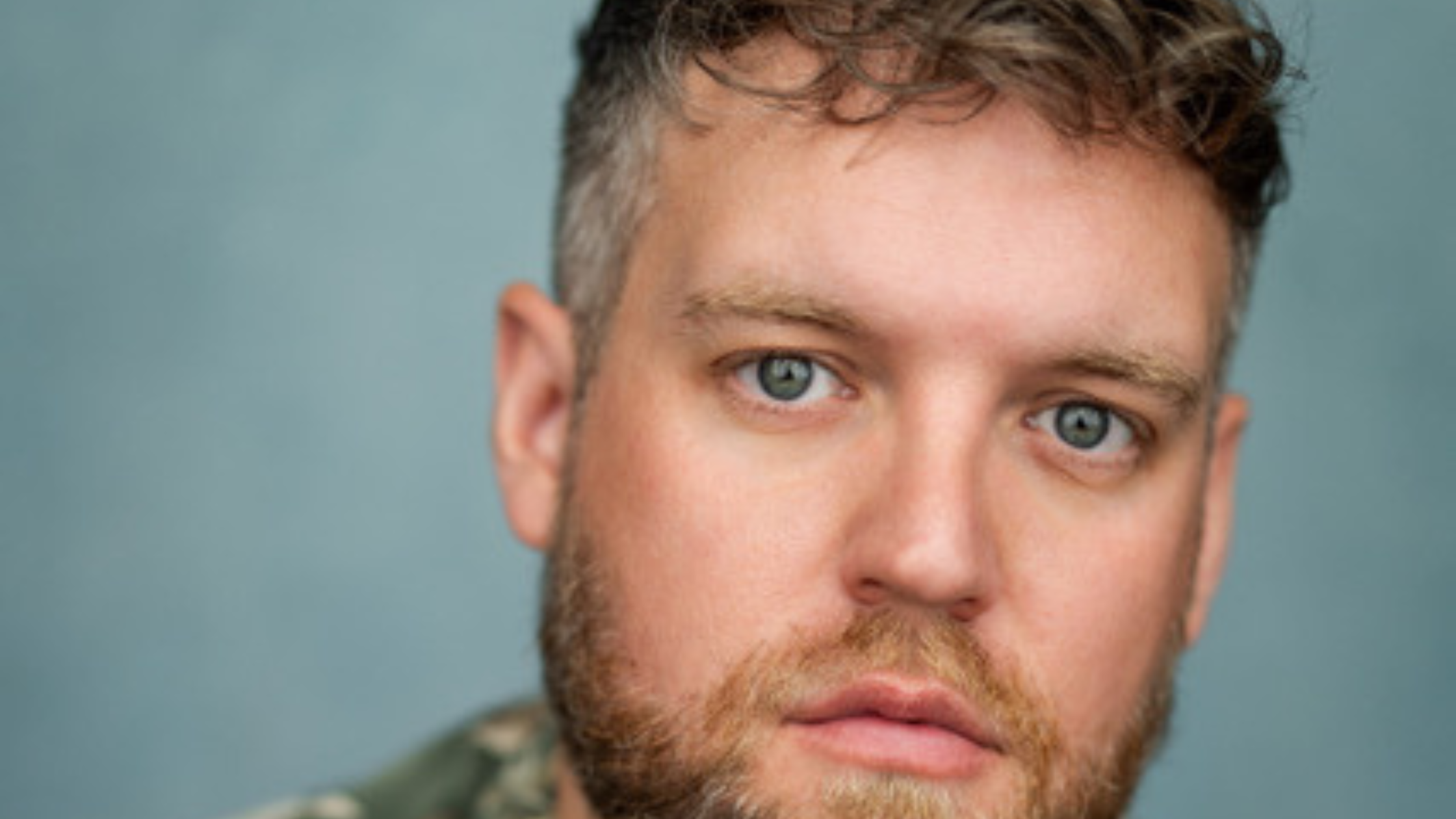Interview with Ariadna Clapés, L’amor venia amb Taxi, Teatre Romea
Conducted by Laura for Theatre and Tonic
After playing Bridget in Lizzie, the Musical, Ariadna Clapés returns to the stage with a completely different energy. L’amor venia amb taxi, by La Cubana, is a joyful, musical production and a true ode to Catalan theatre. Today we talk with her about this change of style, her creative process, and a mysterious story hidden within the walls of Teatre Romea.
One of your latest roles was Bridget in Lizzie, which is a very dark, bloody show, very different from the kind of comedy you’re doing now. How has this change of style been for you?
Very curious and enriching, because they are two very different musicals and two very different roles, Bridget and Maria Rosa, but one adds to the other. The learning you get from one adds to the next, and in the end, when I started here, I didn’t lose all the learning I did from Bridget, which taught me many things.
Bridget is a very dramatic and dark role, with very apotheotic, epic emotions. We’re dealing with hate, the kind of hate that could make you kill somebody. It’s something super extreme. And then you come [to L’amor venia amb Taxi], which is a comedy and very over the top, but also has a very realistic and everyday side, very much from here. In the end, Lizzie is a real event that happened in the United States, while this show is something very much from home [Catalonia], with musical numbers from our cultural history and characters who could easily exist or have existed. Maria Rosa, the character I play, could remind you of someone you know. Lizzie was very earthy and bloody, visceral, and L’amor venia amb Taxi is very airy. Maria Rosa is a very sweet, gentle character, and that big contrast is actually very rewarding as an actress.
It’s funny you say that, because Lizzie is based on a real event, but everything feels very intense, almost exaggerated. Yet Maria Rosa, who’s fictional, seems much more realistic.
Yes, it’s funny. However, the code of one musical and the other are different. Lizzie is realistic, but it’s a realism with a specific code. And here, in La Cubana in general, but especially in L’amor venia amb taxi, everything is very true, very organic. Jordi Milán has taught me so much, especially about working on authenticity and naturalness, doing what you would do from yourself, putting the character inside you and acting as naturally as possible, and making it real; so real that you could walk down the street playing the character.
In fact, one thing my colleagues used to say was: “If you walk down the street playing the character and people believe you, then you’re doing it right.” And that’s a truly wonderful way of working.
Have you tried walking down the street as your character? Maybe with friends?
Yes, but not with friends. When we were doing the first rehearsals here, we rehearsed full scenes, then took a break, and then did a full run. Between one thing and the other, you’d stay partly in costume, and since we wear wigs, we use a kind of bald cap. Of course, that’s ugly to go out with. And being as theatrical as I am, I would put on a wig and go out still in character.
We’d order tea or coffee at the bakery across the street. In fact, we became very good friends with the baker, because every day I’d show up as a different character. The first day she believed me. I won’t tell you which one I played because I don’t want to give spoilers, but she did believe me, and I thought, “That means I’m doing it well.” It was fun.
Even with this change of genre, I feel that mystery still follows you. Now you’re here at the Teatre Romea, where they say there’s a ghost.
Yes, indeed. The ghost of Margarida Xirgu.
Before coming here to the Romea, did anyone warn you about that?
I didn’t know about Margarida Xirgu specifically. Before coming to the theatre, we rehearsed in another space, and one colleague said, “Did you know Margarida Xirgu is at the Romea?” And I didn’t know, to be honest. Then I started to see that, yes, people say that. In fact, Juan [Máñez], the head stage technician, was interviewed not long ago by the newspaper Ara, where he talked about his experiences. He’s been working here as technical director since the 1980s, and all the strange things he’s seen make him say that he feels Margarida is here, that he’s run into her. He hasn’t seen her, but strange things have happened to him.
Margarida Xirgu died in Uruguay, in exile. Her body was later brought back here to Molins de Rei, where she was from. Some people say, “How can she be here if she died in Uruguay?” But of course, this theatre was the first one where she performed professionally. It’s curious, to say the least.
What I did know, and that’s something that I think everyone in theatre knows, and is even mentioned in the show, is that every theatre has a ghost. That’s something quite well known.
Have you ever personally experienced anything?
Yes, here and elsewhere. Let’s start with the Romea. They warned me before entering the theatre. They say that when you come in, you have to say hello to Margarida Xirgu, go into her dressing room, which is actually called “Xirgu’s dressing room”, and introduce yourself, and thank her for letting you be here. Obviously, on the first day, what did Ariadna do? Go straight to Margarida Xirgu’s dressing room, introduce myself, and say thank you. Some other colleagues did as well. There’s nothing to lose in doing a few things to make a good impression and show respect.
Things happen here and we don’t know why. From there, everyone can draw their own conclusions. One that really surprised us was that in Xirgu’s dressing room, there’s always an armchair placed in front of the mirror and a pouf on the side. We had to move everything because we needed a lot of space for all of us as there are many quick changes. So we put in the clothing rack, wig stands, chairs, and we took the armchair out and stored it under the stage. It’s so big you have to carry it through the audience area because it doesn’t fit otherwise, and it’s very hard to bring it back up.
Well, one day we found it back in the dressing room. We thought, “How did it get here if it’s so hard to bring up?” The day before, we’d left around 11 p.m. and it wasn’t there, and suddenly the next day at 6 p.m., it was. So we said, “sorry, Xirgu, for taking it out,” and removed it again because it couldn’t stay there, but in any case, we hope everything’s fine.
And it hasn’t come back?
It hasn’t come back, and everything seems fine. I remember that one very clearly because it was quite big, but yes, Laia [Piró], who plays my mother, has experienced other things, like shoes that were here and then over there, and you’re like, whatever. It’s fine. That’s how it was meant to be, and that’s it.
And you told me that outside of here, you’ve also had experiences?
Yes, at Teatre del Sol, in Sabadell. I have friends who are sound technicians and don’t believe in ghosts at all, but that, out of respect, always spoke to the spirits. No one really knew who the ghosts were, but there was even a small altar with a saint, for the spirits. At night, things happened: lights turning off, strange noises, those kinds of things; I have friends who have told me about several moments like those. Theatrically, I educated myself there, and I’ve grown up in an environment of “Well, there’s a ghost here, no worries, everything’s fine, let’s carry on.”
Is there a corner of Teatre Romea that has a different energy?
Xirgu’s dressing room, yes. But personally, I’d say my spot in the main dressing room. In there, everyone has their own little setup, with makeup and personal things scattered around. I’ve really made it my own little corner. There are photos of my grandparents there, because, in the end, this play is, for me, a tribute to those who came before us: grandparents and parents, but for me, especially my grandparents.
Ghost or not, there’s no denying that Teatre Romea holds a lot of history. What is it like for you to perform in such an iconic, historic theatre?
A huge honour. In fact, I’m still processing it, and even though we’ve already been performing for a month, it still amazes me. It’s a very special theatre because it’s halfway between a big venue like Tívoli or Teatre Victòria and a smaller, more intimate one. That makes it very special for me. I wasn’t aware of the added historical value this theatre has, but you can feel it from the stage, and at the same time, the audience is quite close, which is something I really appreciate. It’s an enormous honour, absolutely.
If you had to choose one stage you’ve performed on so far, which would be your favourite and why?
That’s a very hard question, because I think the answer could change depending on the moment. Right now, for me, this theatre is very special. Coming here has changed my life; my professional career and also my personal life. And that makes it special for sure. But at the same time, if I dig deeper, I’d say Teatre del Sol, which I mentioned earlier, was also a turning point for me. It’s where I started performing shows every weekend for months and months on end. So it was basically like a second home. Just like here at the Romea, I even have a pair of pajamas around! The small room, especially, was super intimate. And I’ll tell you something else… At Teatre Gaudí, the closeness and the energy builds there, it’s incomparable. Everyone is so close to the stage too. The concentrated energy that stays after a performance of Lizzie is incredible. And surprisingly, here at the Romea, even though it’s big, you also feel that energy, which is also great.
You can read the review of L’amor venia amb taxi aquí, and learn more about Ariadna Clapés on her website.





